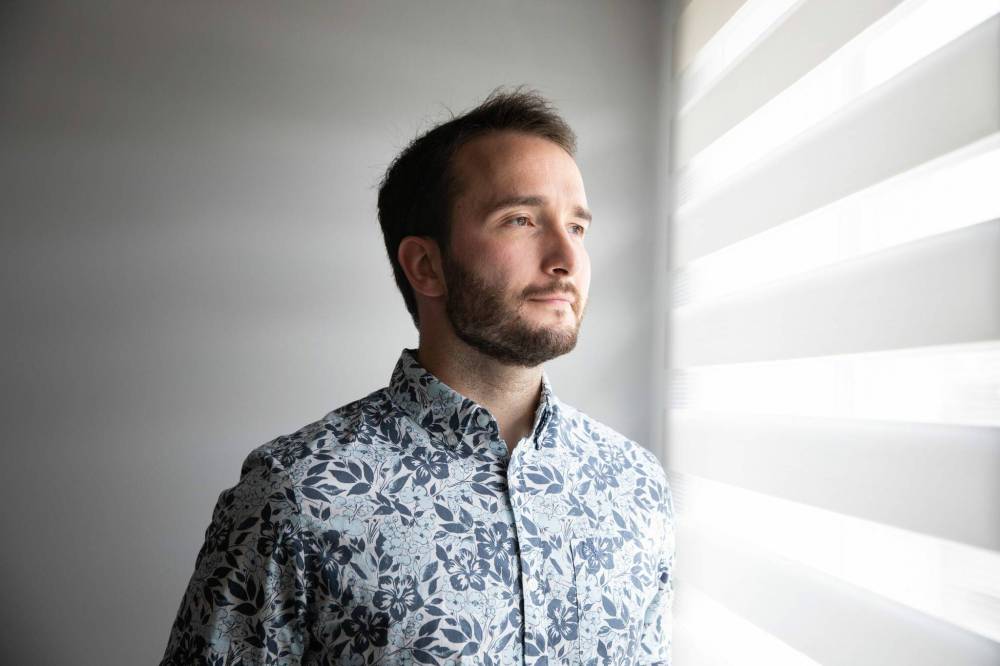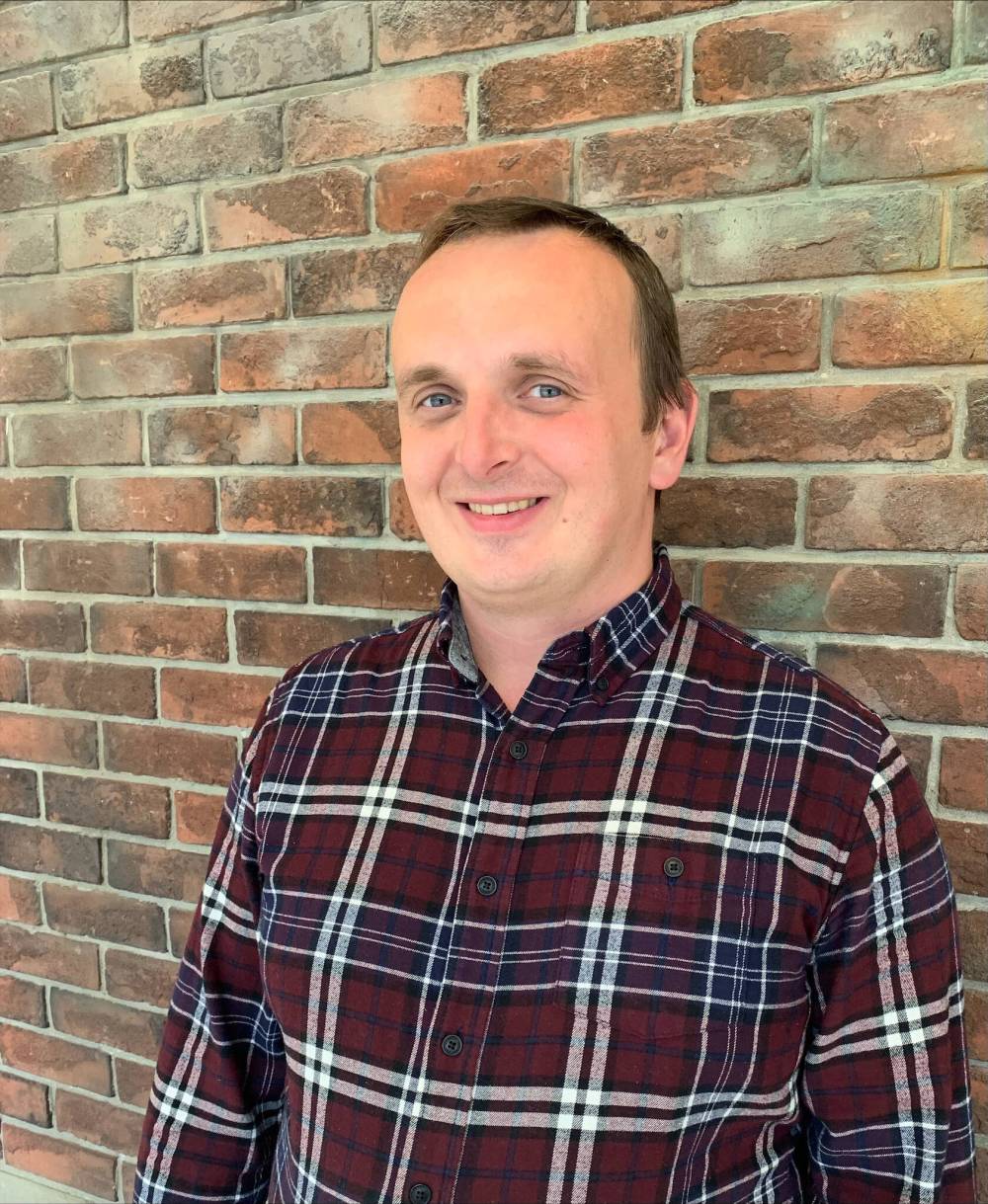Docs Vlad, Slav help get Ukrainian refugees on their feet
Advertisement
Read this article for free:
or
Already have an account? Log in here »
To continue reading, please subscribe:
Monthly Digital Subscription
$0 for the first 4 weeks*
- Enjoy unlimited reading on winnipegfreepress.com
- Read the E-Edition, our digital replica newspaper
- Access News Break, our award-winning app
- Play interactive puzzles
*No charge for 4 weeks then price increases to the regular rate of $19.00 plus GST every four weeks. Offer available to new and qualified returning subscribers only. Cancel any time.
Monthly Digital Subscription
$4.75/week*
- Enjoy unlimited reading on winnipegfreepress.com
- Read the E-Edition, our digital replica newspaper
- Access News Break, our award-winning app
- Play interactive puzzles
*Billed as $19 plus GST every four weeks. Cancel any time.
To continue reading, please subscribe:
Add Free Press access to your Brandon Sun subscription for only an additional
$1 for the first 4 weeks*
*Your next subscription payment will increase by $1.00 and you will be charged $16.99 plus GST for four weeks. After four weeks, your payment will increase to $23.99 plus GST every four weeks.
Read unlimited articles for free today:
or
Already have an account? Log in here »
Hey there, time traveller!
This article was published 10/08/2022 (1219 days ago), so information in it may no longer be current.
A pair of Manitoba health-care workers have found themselves on the front lines of both the COVID-19 pandemic and Ukrainian refugee resettlement.
Known to their co-workers as “Vlad” and “Slav” at the RBC Convention Centre immunization clinic, Volodymyr Pimakhov and Yaroslavl Sanchak have different immigration stories but the same vision: to serve Manitobans in whatever capacity they can.
When Ukrainian refugees began to arrive in the province, fleeing the Russian invasion in Eastern Europe, Pimakhov and Sanchak started volunteering at the pop-up vaccination clinic at a city hotel. They’ve since interacted with hundreds of Ukrainian nationals, attending to their health and social needs.

JESSICA LEE / WINNIPEG FREE PRESS
Yaroslav Sanchak currently works as a clinical supervisor at the COVID-19 immunization clinic at the RBC convention centre.
“I’m so glad I was there to help because I know, to some degree, what they’re going through,” Sanchak said. “When I first came to Canada, I did not know a single word of English.”
For more than a year, Sanchak and Pimakhov have also worked on the front line of Manitoba’s vaccination efforts. When they’re not volunteering or giving out boosters, they are both working to transfer their international medical credentials and begin working as physicians in Canada.
Sanchak immigrated from Ukraine when he was nine. His passion for medicine was sparked in high school, while volunteering with elderly patients at the Grace Hospital emergency ward.
“Just by listening to someone, it made them feel a lot better,” Sanchak said. “One of my favourite things about medicine is just being there for somebody.”
After completing his undergraduate degree in Manitoba, he longed to return to his birthplace, where most of his family still lives.
“I’d been in Canada at that point for like 10 years, and I hadn’t had a chance to see any of my relatives,” Sanchak said. “As I was getting older, and my grandparents were getting older, I was getting concerned, because they lived by themselves in a village and they didn’t really have anyone to care for them, especially as they got older.”
To pursue medicine while reconnecting to relatives, Sanchak decided to study medicine in nearby Poland. Later, moving back to Canada, he began the process of transferring his medical credentials.
In 2020, Pimakhov had the opportunity to immigrate to Canada with support from the Ukrainian Canadian Congress. He had worked as a surgeon, practiced massage therapy and taught at a medical school in Ukraine.
“I decided to challenge myself with moving to a new country to get international recognition of my credentials,” Pimakhov said.
In January 2021, Shared Health called on Pimakhov to be a clinic navigator at the downtown Winnipeg immunization super site. Working as an immunizer was the “best part of (his) life,” he said.
But on Feb. 24, everything changed: Russia invaded Ukraine, forcing millions to flee the country.
During a phone call with the Free Press, Pimakhov became emotional while speaking of the war.
“When it happened, it was something I (couldn’t) find the words for,” he said. “I have parents in their 60s, and it is not a picnic for them to move to another country, to adjust to a new culture, and to learn a new language.”
On the day Russia invaded Ukraine, Sanchak received word his grandparents were building a bomb shelter, while “their house was literally shaking from the… missiles that were exploding.”
Months later, the two health-care workers are doing everything they can to make Ukrainians feel at home.

Supplied
Ukrainian physician Volodymyr Pimakhov, working as a clinical supervisor at the COVID-19 immunization clinic at the convention centre, wrote his Canadian medical certification and is now hoping to find work as a physician in Manitoba.
“While immunizing and providing them with all the information, I’m doing it in Ukrainian. I still make sure that I maintain my Ukrainian language to comfort them, and tell them that they’re safe,” Sanchak said.
The pair have contributed far more to the COVID-19 immunization campaign than just inoculating arms. Earlier in the pandemic, the Ukrainian Canadian Congress invited Pimakhov to share his knowledge on vaccinations in an effort to educate the community and provide answers to the vaccine hesitant.
Pimakhov said watching those who were initially hesitant later come in for their second dose was deeply meaningful.
“They invited me as a person who worked for Shared Health as an immunizer,” he said. “We had dozens of chats about the vaccine, explaining the facts, busting the myths.”
Now, with hundreds of Ukrainians arriving in Manitoba each month, Sanchak (who speaks English, Ukrainian and Polish) believes the demand for medical professionals will skyrocket. “There’s a huge influx, and a lot of them have very, very minimum English skills.”
However, transferring medical credentials and completing all the required Canadian exams is no easy feat.
Foreign physicians who wish to transfer their credentials must pass the Medical Council of Canada qualifying examination, which includes a clinical and theory aspect. Following that, internationally trained physicians may apply for a residency in Canada, and then begin practicing in their desired medical field.
Pimakhov said obtaining Canadian licensing has been difficult. One of the main obstacles is getting into a residency program, as most of the spots are given to Canadian medical school graduates.
Sanchak is currently looking for work as a clinical assistant.
Although he is a trained surgeon, Pimakhov said he’d be happy to work where his medical skill set is most needed.
“I’m so grateful that I had a chance to move here two years ago. It was a type of blessing,” he said. “I will do my best through all my life to help in the community and do whatever necessary to come over the crisis we have right now.”
cierra.bettens@freepress.mb.ca




